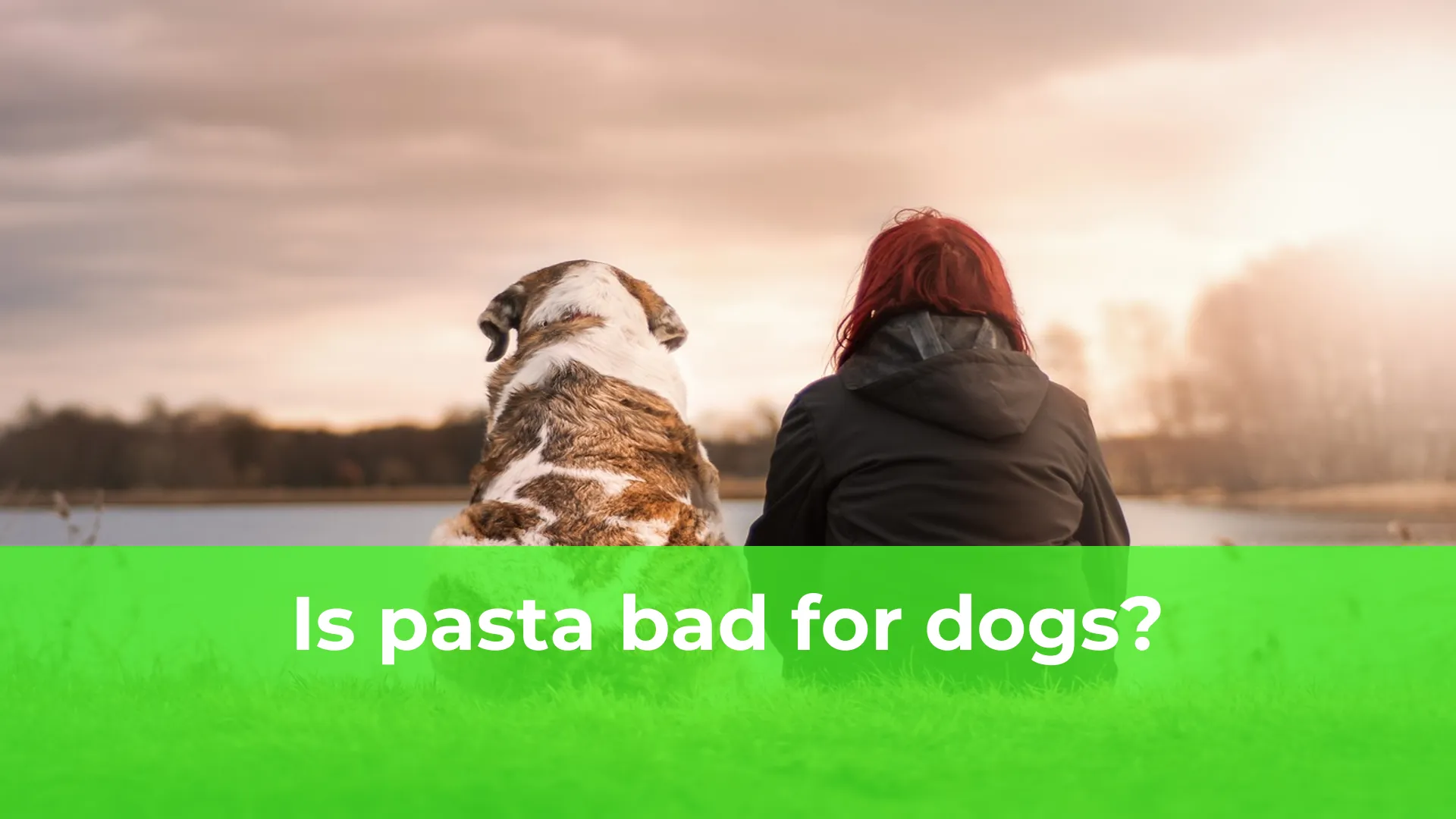Is pasta bad for dogs?
Curious about whether pasta is harmful to your furry friends? We’ve got all the answers you need. While pasta is a beloved staple in many households, it’s important to understand how it can affect your dog’s health. In this article, we will delve into the pros and cons of feeding pasta to dogs and provide you with valuable insights to make an informed decision.
Dogs have different dietary requirements than humans, and certain types of pasta can pose risks to their well-being. While plain, cooked pasta in small amounts may not be harmful, it’s essential to be aware of potential issues such as allergies, weight gain, and digestive problems. We will explore the nutritional aspects of pasta and discuss whether it is a suitable addition to your canine’s diet. Stay tuned to discover the dos and don’ts of feeding pasta to your four-legged companion and ensure their overall health and happiness.
1. The Truth About Pasta and Dogs: Separating Fact from Fiction
There has been a long-standing debate about whether or not it is safe to feed pasta to dogs. Some believe that pasta is harmful to dogs because it contains ingredients that can be difficult for them to digest. However, the truth is that pasta can actually be a healthy addition to a dog’s diet when fed in moderation and prepared properly. In this article, we will separate fact from fiction and provide you with all the information you need to know about feeding pasta to your furry friend.
One common misconception is that pasta is high in carbohydrates and can lead to weight gain in dogs. While it is true that pasta is a carbohydrate-rich food, it can actually be a good source of energy for dogs, especially those who are active or participate in high-energy activities. The key is to feed pasta in appropriate portions, taking into consideration your dog’s size, age, and activity level. It is also important to choose whole grain or whole wheat pasta, as these options are higher in fiber and nutrients.
Another concern often raised is that pasta can cause digestive issues in dogs. This is only true if the pasta is overcooked or seasoned with ingredients that are toxic to dogs, such as garlic or onion. Plain, cooked pasta without any added sauces or spices is generally safe for dogs to eat. However, it is always recommended to consult with your veterinarian before introducing any new food into your dog’s diet, especially if your pet has any pre-existing health conditions or food allergies.
2. Examining the Health Implications of Feeding Pasta to Your Furry Friend
As a pet owner, it’s natural to want to share your favorite foods with your furry friend. However, when it comes to pasta, there are some important health implications to consider. While pasta may seem harmless, feeding it to your pet can lead to weight gain, digestive issues, and potential nutrient deficiencies. In this article, we will dive into the specific health risks associated with feeding pasta to your furry friend and provide alternative options for a balanced diet that meets their nutritional needs.
3. Can Dogs Safely Enjoy a Pasta Dish? Veterinary Experts Weigh In
Many dog owners often wonder if it is safe to share a pasta dish with their four-legged friends. After all, who can resist those pleading eyes and drooling mouths as we enjoy a delicious plate of pasta? To get to the bottom of this canine culinary question, we reached out to veterinary experts to gather their insights and advice on whether dogs can safely enjoy a pasta dish.
According to the veterinary experts, dogs can indeed enjoy a pasta dish, but with some important caveats. While pasta itself is generally safe for dogs to consume, it is essential to consider the toppings and sauces that accompany it. Dogs should avoid ingredients like onions, garlic, and certain spices, as they can be toxic to them. Additionally, dogs should not be given pasta dishes that contain excessive amounts of salt or unhealthy fats. Moderation is key when feeding pasta to dogs, ensuring it is a small part of a balanced and nutritious diet.
4. Unraveling the Myths: Debunking the Notion that Pasta is Harmful for Dogs
There has been a long-standing belief among pet owners that feeding pasta to dogs can be harmful to their health. However, it’s time to unravel this myth and set the record straight. Contrary to popular belief, pasta can actually be a healthy addition to your dog’s diet when given in moderation and prepared correctly.
Pasta is a great source of carbohydrates, which provide energy for dogs. It also contains essential nutrients such as fiber, vitamins, and minerals that can contribute to their overall well-being. While it’s important to remember that dogs have different nutritional needs than humans, pasta can still be a safe and nutritious option for them if served in appropriate portions and without any harmful additives. By debunking this common misconception, we can help pet owners make informed decisions about their furry friends’ diet.
5. Pasta and Dogs: Understanding the Nutritional Considerations
Pasta is a staple in many households, but can dogs safely indulge in this carbohydrate-rich dish? Understanding the nutritional considerations is essential to ensure our furry friends maintain a balanced diet. While pasta itself isn’t toxic to dogs, it should be consumed in moderation and with certain precautions in mind.
First and foremost, it’s important to consider the type of pasta you’re feeding your dog. Opt for whole grain or whole wheat varieties, as they are higher in fiber and nutrients compared to refined white pasta. Additionally, avoid serving pasta with rich sauces or heavy seasonings, as they can cause digestive upset or even lead to pancreatitis in dogs.
Furthermore, portion control is key when it comes to feeding pasta to dogs. Too much pasta can lead to weight gain and obesity, which can have detrimental effects on their overall health. It is recommended to incorporate pasta into your dog’s diet as a small treat or mix it with other nutritious ingredients to provide a well-rounded meal.




